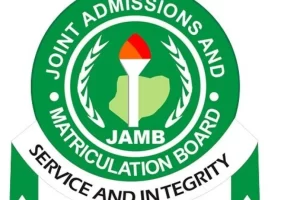In a recent blogpost published on its website, the multilateral lender explained that the trust fund would primarily help the targeted countries to become resilient to balance of payment shocks, as well as ensure sustainable recovery.
Business Insider Africa understands that the trust fund would be known as Resilience and Sustainability Trust (RST). It would be put together using parts of a $650 billion Special Drawing Rights (SDR) that was approved by the IMF’s Board of Governors in August 2021.
Do note that the main objective of the trust fund “is to provide affordable long-term financing to support countries as they tackle structural challenges,” the IMF said.
According to the IMF, it is a shared responsibility to collectively proffer solutions to the public policy challenges that are preventing much of the world’s economies from becoming resilient to shocks and achieving sustainable and inclusive growth. That’s the rationale behind the newly proposed trust fund.
“Even as countries continue to battle COVID-19, it is crucial not to overlook the longer-term challenge of transforming economies to become more resilient to shocks and achieve sustainable and inclusive growth. The pandemic has taught us that not addressing these long-term challenges in a timely manner can have significant economic consequences, with the potential for future balance of payments problems… These are global public policy challenges, and it is the shared responsibility of individual countries and the international community to take timely actions,” said some parts of the statement by the IMF.
The proposed trust fund is still subject to approval by the IMF’s Executive Board. It is, however, expected to take effect before the end of 2022.
Key features of the Resilience and Sustainability Trust to note
- All low-income, developing and vulnerable small states and vulnerable middle-income countries of the world are eligible to benefit from the trust fund.
- However, countries must be willing and ready to undertake certain necessary structural reforms which will then qualify them to receive much needed development finance from the IMF.
- In specific terms, before eligible countries can qualify to benefit from the trust fund, they would need the following: a package of high-quality policy measures consistent with the RST’s purpose; a concurrent financing or non-financing IMF-supported programme with appropriate macroeconomic policies to mitigate risks for borrowers and creditors; and sustainable debt and adequate capacity to repay the Fund.
- The RST will allow for very flexible financing terms, especially with regards to maturity. In the meantime, a 20-year maturity period and a 10-year grace period has been proposed.
- Access to RST financing would be determined case by case, based on the strength of reforms and debt sustainability considerations.


![IMF's newly proposed $50 billion trust fund to benefit low-income [African] countries](https://www.naijatabloid.com/wp-content/uploads/2022/06/IMFs-newly-proposed-50-billion-trust-fund-to-benefit-low-income-990x520.jpeg)



















Add Comment